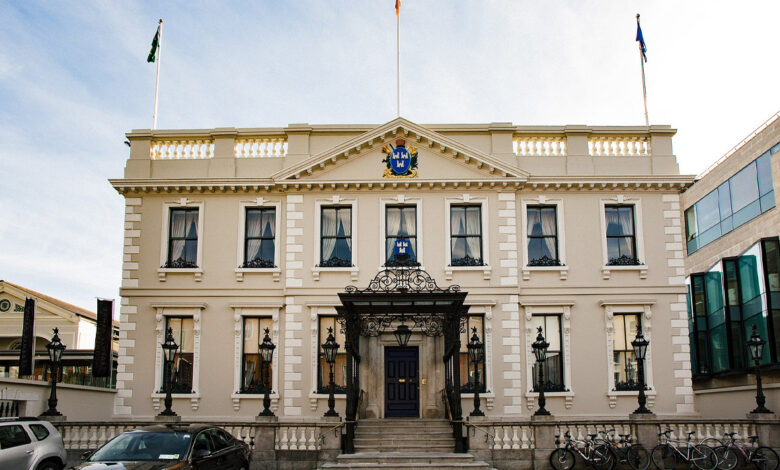Elected mayors to govern Ireland’s cities

Both Dublin and Limerick could have directly elected mayors before the end of the current Government’s term, if ambitions are to be met.
It has been confirmed by the Department of Housing, Local Government and Heritage that citizens of Limerick City and County Council will be offered the opportunity to vote on the proposal on a date which coincides with next year’s European elections.
Furthermore, a Citizens’ Assembly, sitting in June 2023, recommended citizens of Dublin be afforded the opportunity to have a referendum on the proposal of a directly elected mayor of Dublin.
Dublin mayor
The Government is aiming to ensure that a referendum is held in Dublin on a date in 2024 which coincides with local or European elections to establish a directly elected mayor. As Dublin is split into four different local authorities, it is unclear whether the proposed elected mayor would be for the Dublin City Council area or would cover all of the local authorities within County Dublin.
In June 2023, a Citizens’ Assembly recommended that a directly elected mayor of Dublin should be responsible for oversight of 15 policy areas including homelessness, housing, community healthcare, transport, the environment, and emergency services.
The Citizens’ Assembly also recommends that the mayor have the power to raise revenues and to borrow, further suggesting that the mayor should have the power to introduce new regulations and to convene meetings with local and national agencies.
Although the mayor would have an overtly political role in formulating and managing policy, and be elected by popular vote, the Assembly recommends that the mayor be “above party politics” and should have a Cabinet made up of a majority of elected councillors. The mayor would also be term-limited, elected for a five-year term, for a maximum of two terms.
Speaking following the publication of the Citizens’ Assembly report in June, Taoiseach Leo Varadkar TD said: “We will be looking for a report from those committees before the end of the year so we can then make a decision and respond from Government early in the new year with a view to putting a question to the people of Dublin at the same time as the local and European elections as to whether we should have a directly elected mayor and reform local government in Dublin.”
Limerick mayor
The process of establishing a mayor of Limerick is further along than the proposal for Dublin, with the Local Government (Mayor of Limerick) Bill, published in August 2023, outlining the role and remit of the prospective mayor. The Bill will be put before the Oireachtas in autumn.
Minister of State for Local Government Kieran O’Donnell TD has further stated that the referendum to establish a mayor will take place concurrently in Limerick with the European elections in 2024.
The Mayor would be directly elected, and would be required to not hold a seat on Limerick City and County Council. The councillors in Limerick City and County would be further required to scrutinise and work in tandem with the mayor.
Furthermore, the proposal would restructure Limerick City and County Council to a three-tier structure of the councillors, the mayor, and chief executive, who would become director general of the council.
Although the mayor would have a wide range of functions including the strategic and economic development of Limerick, housing, road transport and safety, and environmental services, the director general would retain responsibility for managing the council’s day-to-day operations.
Minister of State O’Donnell said: “The directly elected mayor will take on many of the executive functions which currently rest with the chief executive and will also take on a host of new functions, supported by a budget to implement the mayor’s programme and priorities.”

International examples
Although directly elected mayors are not yet established in Ireland, the model has been rolled out in countries such as France, the UK, and the United States, albeit with differing levels of satisfaction.
In England, the most notable mayor is the directly elected Mayor of London, who heads the Greater London Authority (GLA). The GLA is also partially governed by the London Assembly, an institution with similar powers to the Northern Ireland Assembly over the Greater London Area. The London Assembly also performs scrutiny over the activities of the Mayor of London.
In addition to the governance of a city, a mayor is, in essence, a figurehead who is seen as a city’s representative throughout the world, as exemplified by former British Prime Minister Boris Johnson’s use of the role of Mayor of London to significantly increase his public profile through his time in office, with his increased fame playing a significant role in his eventual rise to power in the UK.
Although the role of mayor has been seen as a relative success with fairly high levels of approval in England’s larger cities, in small towns where mayors have been introduced, the levels of approval have been mixed, with towns such as Hartlepool having since voted to abolish its elected mayor and retain a traditional form of local government.
The path forward
This is not the first attempt at establishing elected mayors in Ireland. In 2019, pilot votes were held in Cork, Limerick, and Waterford on whether to introduce a directly elected mayor, with only Limerick voting in favour.
Additionally, the Local Government Act 2001 included a provision for the election of mayors, starting with the 2004 local elections, but this was repealed in 2003.
However, Minister of State for Local Government Kieran O’Donnell TD, who assumed his role in February 2023, has stated that “every county of Ireland” should have a directly elected mayor. “I think it is a natural evolution, and if we look at other European countries, they have all evolved in that space.”





